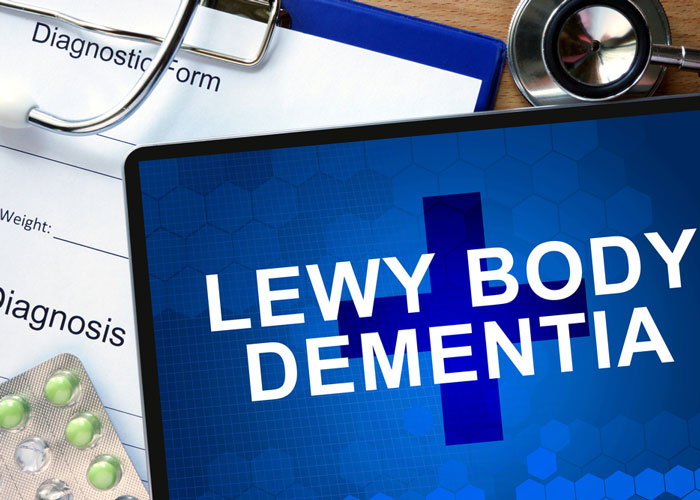Sunday, 25 February 2018
Social Media
Thursday, 22 February 2018
Social Media
After having a lot of problems recently, I have decided to close down some of my social media links
This is because I am struggling to cope with it all these days It's very sad, but I think it's time to step back and take things easy
I am also getting tired struggling a little with my health and confess my eyesight etc is not what is used to be
Part of the problem is that I have noticed a rise in political and racial hatred etc, and I want nothing to do with this sort of thing.
Life is too short to get involved with something I have little or no control over, so I have taken the easy route out of it
Many people have complained about the rise in hatred on these sites, so I guess it's time to say goodbye to many people.
I am sure that anyone wishing to contact me, can still do do using other methods in the future
Ken
Tuesday, 20 February 2018
Lewy Body Dementia and Alzheimer's
DEAR MAYO CLINIC: What’s the difference between Lewy body dementia and Alzheimer’s? How is Lewy body dementia diagnosed?
ANSWER: Doctors diagnose Lewy body dementia based on the range of symptoms a person shows. Generally, the diagnosis requires an ongoing decline in thinking skills, along with two of the following: visual hallucinations, Parkinsonism or fluctuating alertness. In addition, people who have Lewy body dementia also may experience a sleep condition known as REM sleep behavior disorder, in which people act out their dreams while they sleep. They also may have instability in their blood pressure and heart rate, and the body may have difficulty controlling body temperature and sweating.
A brain disease that gets worse over time, Lewy body dementia is caused by an abnormal protein, called synuclein, which is deposited in certain nerve cells and nerve processes. These deposits are called Lewy bodies — named after the physician who first identified them. In Lewy body dementia, Lewy bodies are found in the deep structures of the brain that control movement, as well as in the middle and outer structures involved in emotion, behavior, judgment and awareness.
Many patients with Lewy body dementia also have overlapping Alzheimer’s disease. About half of Lewy body patients have significant Alzheimer’s disease, as well. Thus, it is not surprising that those diagnosed with Lewy body dementia have symptoms associated with Alzheimer disease, such as memory loss and naming difficulty. However, when doctors who have expertise and experience with the disease make a Lewy body dementia diagnosis, that diagnosis is often correct — as confirmed later during an autopsy. An accurate diagnosis is important, because Lewy body dementia responds differently than Alzheimer’s disease to commonly prescribed dementia medications.
Lewy body dementia usually progresses gradually over several years, but the way it progresses can vary significantly from person to person. For example, Lewy body dementia may begin with signs of dementia, and Parkinsonism appears later. Or the disease may start with movement difficulties, and signs of dementia don’t emerge for some time. Most people with Lewy body dementia experience the onset of Parkinsonism and dementia within one year. As Lewy body dementia progresses, all symptoms usually become more severe.
Hallucinations occur early in Lewy body dementia but only after about four years in Alzheimer’s disease. If a person acts out dreams, that is strong evidence that he or she has synuclein protein in the brain. This protein is found only in Lewy body dementia, Parkinson’s disease and a rare disease called multiple system atrophy. Acting out one’s dreams is a feature in all of these diseases.
Lewy body dementia is a complex disease, and it can be difficult to control. Currently, there’s no cure. But, when treatment is carefully managed, symptoms may be reduced, so they have less effect on a person’s daily functioning and quality of life.
Some people diagnosed with Lewy body dementia respond positively to medications called cholinesterase inhibitors. They boost the level of a chemical messenger in the brain called acetylcholine that’s important for memory and other cognitive functions. These drugs may help improve alertness and reduce hallucinations and signs of dementia.
Other medications are available to help decrease the Parkinsonism, hallucinations and other Lewy body dementia symptoms. These medications must be closely monitored by a health care provider. In people who have Lewy body dementia, medications to improve motor function may make symptoms such as hallucinations worse, and medications used to combat dementia may increase Parkinsonism.
Because Lewy body dementia treatment needs to be managed skillfully to obtain the most effective results, people who have this disease should be monitored by a physician with expertise and experience with Lewy body dementia — usually a neurologist or a neuropsychiatrist. — Neill Graff-Radford, M.D., Neurology, Mayo Clinic, Jacksonville, Fla.
(Mayo Clinic Q & A is an educational resource and doesn’t replace regular medical care. E-mail a question to MayoClinicQ&A@mayo.edu. For more information, visit www.mayoclinic.org.)
(c) 2017 MAYO FOUNDATION FOR MEDICAL EDUCATION AND RESEARCH. ALL RIGHTS RESERVED. DISTRIBUTED BY TRIBUNE CONTENT AGENCY, LLC.
TagsAlzheimer'sDementiaLewy Body Dementia No Comments
Related Articles
Nutrition
The best diet for weight loss
Nutrition
Ride the Whole Grain Train
Tribune
Natural ways to control urinary incontinence
Nutrition
Humble hummus is a good snack
Mental Health
What to consider before stopping antidepressants
Cancer
What you need to know about 4 gynecological cancers
Neurology
Does drinking diet soda raise the risk of a stroke?
Family Health
Simple ways to turn your health around
Nutrition
Warm up to winter fruit
Neurology
Researchers may have discovered a cause of multiple sclerosis
Nutrition
The best diet for weight loss
Nutrition
Ride the Whole Grain Train
Leave a Reply
Your email address will not be published.*
Ride the Whole Grain Train
JOIN OUR NEWSLETTER
STAY IN TOUCH0Like0Follow0Pin
© Copyright 2018 - Chicago Health. Northwest Publishing, LLC. All Rights Reserved.
Monday, 12 February 2018
Exercising may improve the memory
Exercising Twice a Week may Improve Memory of Mild Cognitive Impaired Patients
Zonisamide may help those with DLB
Zonisamide may help those with dementia with Lewy bodies

Tuesday, 6 February 2018
Bronchiectasis and Autoimmune System
Bronchiectasis May Trigger Autoimmune Inflammatory Disease, Study Suggests

Monday, 5 February 2018
Brain Donation Process
Newcastle Brain Tissue Resource (NBTR)
Brain Donations
Who can donate tissue?
- Email: nbtr@ncl.ac.uk or telephone our research nurses:
- Debbie Lett on 0191 208 1231
- Susan Richardson on 0191 208 1229
Music and dementia
Although music can be calming for those living with Dementia, over the last few weeks, i have struggled to cope with some of the music i lov...
-
Dementia and Eyesight problems I noticed some time ago, that my eyesight was giving me problems when trying to read and concentrate on t...
-
Although music can be calming for those living with Dementia, over the last few weeks, i have struggled to cope with some of the music i lov...
-
A few weeks ago I wrote about problems processing information, but over the last few days I have noticed other problems, which will have an...
